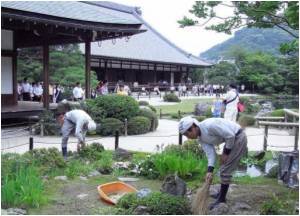Media reports indicate that scientists from several European universities are collaborating to develop a coral that could become an effective, carbon-negative way to grow walls.

Danish scientists even got protocells to behave like the marine organisms that build coral, capturing carbon dioxide in solution and turning it into carbon-based materials. The idea is to ultimately get the process to generate calcium carbonate.
As Gizmag's Ben Coxworth points out, this type of artificial process is already on display, albeit in a futuristic, interactive art installation setting.
Canadian sculptor and architect Philip Beesley's Hylozoic Ground environment presents visitors with arrays of fragile touch sensors.
Scientific designer Martin Hanczyc developed the project's living chemistry feature: protocells that turn visitors' exhalations into carbon-containing solids.
Source-ANI









